Discover This Anthro Life
This Anthro Life

 This Anthro Life
This Anthro Life
Author: Anthrocurious, LLC
Subscribed: 459Played: 5,138Subscribe
Share
© Anthrocurious, LLC
Description
This Anthro Life is the premiere go-to Anthropology Podcast that fuses human insights with cultural storytelling. We equip you with a deep understanding of the human experience to revolutionize your decision-making strategies and social impact. Head over to https://www.thisanthrolife.org to learn more. Spearheaded by acclaimed Anthropologist Dr. Adam Gamwell, This Anthro Life equips leaders, individuals, and organizations to shape a more compassionate future. We aim to broaden perspectives and fortify decision-making skills by fostering a profound understanding of culture coupled with the transformative power of storytelling. With curated conversations and thought-provoking discussions featuring humanity's top makers and minds, prepare to have your perspective transformed. This Anthro Life delves into various facets of human society—from examining the complexities of cultural identity to understanding the influence of technology on our everyday lives.
🌍 Change Your Perspective
Explore the complexities of life in a simple and engaging way. From AI and robotics revolutionizing the nature of work to emojis changing how we communicate, we delve into the forces shaping our world. No topic is off-limits—fossil fuels and their impact on our planet, the race to find alternative energy solutions, and so much more.
🎙️ Captivating Conversations
Go beyond surface-level discussions with deep dives into fascinating topics. Dr. Adam Gamwell's interviews are thought-provoking, enlightening, and always entertaining. Carefully crafted questions ensure engaging conversations that are free from jargon, making them accessible to listeners of all backgrounds.
✨ Key Takeaways
Gain valuable insights from each episode that you can apply to your own life. Discussing wisdom gained from the edges of society, we extract impactful quotes and actionable ideas from our guests. Expand your horizons and develop a fresh perspective on the challenges we face as individuals and as a global community.
🔊 Join the Community on Substack
Subscribe to "This Anthro Life" now for a weekly dose of eye-opening conversations. Share the podcast with friends and family who crave intellectual stimulation and diverse discussions. Be a part of the movement to change how we approach design, culture, business, and technology.
Beyond offering an engaging outlook on human experiences, This Anthro Life lends its anthropological expertise to businesses, organizations, and individuals. We help them navigate challenges with effective communication techniques and innovative problem-solving strategies rooted in a nuanced understanding of human behavior and social structures. Get in touch.
Join us on this captivating voyage of storytelling at the crossroads of culture, design, technology and business. We're excited to collaborate with you in shaping a more compassionate world through an enriched narrative of the human experience. Experience breakthrough perspectives on human experiences and come away equipped to make enriched decisions that contribute positively to your sphere. Join us as we shape a more connected, hopeful narrative - one human story at a time.
🌍 Change Your Perspective
Explore the complexities of life in a simple and engaging way. From AI and robotics revolutionizing the nature of work to emojis changing how we communicate, we delve into the forces shaping our world. No topic is off-limits—fossil fuels and their impact on our planet, the race to find alternative energy solutions, and so much more.
🎙️ Captivating Conversations
Go beyond surface-level discussions with deep dives into fascinating topics. Dr. Adam Gamwell's interviews are thought-provoking, enlightening, and always entertaining. Carefully crafted questions ensure engaging conversations that are free from jargon, making them accessible to listeners of all backgrounds.
✨ Key Takeaways
Gain valuable insights from each episode that you can apply to your own life. Discussing wisdom gained from the edges of society, we extract impactful quotes and actionable ideas from our guests. Expand your horizons and develop a fresh perspective on the challenges we face as individuals and as a global community.
🔊 Join the Community on Substack
Subscribe to "This Anthro Life" now for a weekly dose of eye-opening conversations. Share the podcast with friends and family who crave intellectual stimulation and diverse discussions. Be a part of the movement to change how we approach design, culture, business, and technology.
Beyond offering an engaging outlook on human experiences, This Anthro Life lends its anthropological expertise to businesses, organizations, and individuals. We help them navigate challenges with effective communication techniques and innovative problem-solving strategies rooted in a nuanced understanding of human behavior and social structures. Get in touch.
Join us on this captivating voyage of storytelling at the crossroads of culture, design, technology and business. We're excited to collaborate with you in shaping a more compassionate world through an enriched narrative of the human experience. Experience breakthrough perspectives on human experiences and come away equipped to make enriched decisions that contribute positively to your sphere. Join us as we shape a more connected, hopeful narrative - one human story at a time.
200 Episodes
Reverse
How do societal norms and personal experiences intersect in shaping our understanding of love and sexuality?In this insightful episode of This Anthro Life, we delve into transforming the landscape of Sexual Norms with Dr. Leanna Wolfe. We delve into the intricate connections between love, anthropology, and human desires. Dr. Wolfe’s memoir, "177 Lovers," serves as a catalyst, challenging conventional views on sexuality and relationships. They navigate the complex narratives surrounding virginity and parental sexual history, highlighting the discrepancies between societal expectations and lived realities. The conversation extends to the evolving landscape of sexual norms, including the rise of polyamory and its implications for intimacy and commitment. Dr. Wolfe’s insights on sexual tourism and changing attitudes toward sexual assault underscore the importance of cultural understanding and consent. Ultimately, they emphasize the necessity of embracing diverse experiences and truths in navigating the realm of sexuality.Join us in this intellectually rich conversation with Dr. Leanna Wolfe as we delve into the unexpected intersections of love, anthropology, and the raw data of our desires. Expand your understanding of human relationships and challenge societal normsTimestamps00:00 - Introduction to the episode and guest, Dr. Leanna Wolfe09:12 - The impact of family narratives on sexuality and the discovery of hidden truths16:27 - Exploring alternative ways of approaching adolescence and gender19:02 - Shifting cultural perspectives on gender and sexuality24:04 - The benefits of practicing polyamory for brain chemistry and excitement33:45 - Different configurations of polyamory and managing jealousy42:14 - The transactional nature of relationships and the importance of consent51:10 - Research challenges and the importance of open and honest conversations about sex56:50 - Challenges of moving away from addiction to meth and finding value in in-person connection1:01:33 - Wrapping up the conversation and thanking the guestKey Takeaways:Dr. Wolfe’s memoir, "177 Lovers," offers a unique perspective that challenges conventional norms of sexuality and explores the intricate intersections of love and anthropology.Societal narratives about parental sexual history and virginity may diverge from personal experiences, highlighting the complexity of cultural expectations.Polyamory, characterized by multiple partners, is gaining acceptance, offering both variety and stability in relationships.Sexual tourism raises ethical questions regarding consent, economic dynamics, and its impact on local communities.The #MeToo movement signals shifting attitudes toward sexual assault, emphasizing the importance of clear communication and respect for boundaries.Generational differences exist in understanding consent, with younger generations prioritizing open and honest communication in intimate encounters.About This Anthro Life Podcast:This Anthro Life is a thought-provoking podcast that explores the human side of technology, culture, and business. Hosted by Adam Gamwell, we unravel fascinating narratives and connect them to the wider context of our lives. Tune in to https://thisanthrolife.org and subscribe to our Substack at https://thisanthrolife.substack.com for more captivating episodes and engaging content. Connect with Dr. Leanne Wolfe:Website: https://www.drleannawolfe.com/ Connect with This Anthro Life:Instagram: https://www.instagram.com/thisanthrolife/ Facebook: https://www.facebook.com/thisanthrolife LinkedIn: https://www.linkedin.com/company/this-anthro-life-podcast/ This Anthro Life website: https://www.thisanthrolife.org/ Substack blog: https://thisanthrolife.substack.com
How can entrepreneurial spirit redefine traditional career paths and drive societal change through innovative collaboration?In this enlightening episode of This Anthro Life, inspired by "Venture Meets Mission," we engage with author Gupta to unravel the transformative potential of entrepreneurship. Gupta advocates for a nonlinear career path, urging individuals to become "dual citizens" in multiple sectors. He emphasizes trust-building between government and business, highlighting personalized entrepreneurship's role in creating meaningful impact. Gupta explores the synergy between venture capital and government collaboration to drive innovation and social entrepreneurship. His insights inspire a reimagining of traditional boundaries, focusing on mission-driven ventures. Join us in embracing this mindset for a brighter, more sustainable future.Join us in this enlightening discussion as we uncover the transformative potential of anthropology in shaping meaningful careers and fostering innovation in today's dynamic professional landscape.Timestamps:0:00 Intersection of entrepreneurship, technology, and government to address societal problems.2:48 Entrepreneurship, government, and social impact with a focus on intersectionality.6:32 Non-linear career paths and breaking down binary choices between profit and non-profit.11:35 Building trust between govt, business, and academia through dual citizenship 17:17 Personalizing entrepreneurship and its cultural significance.22:45 Entrepreneurship, uncertainty, and adaptability in a rapidly changing world.26:52 Gen Z's purpose-driven mindset and how it's shaping the workforce.33:33 Impact investing and bridging the digital divide.39:31 How the government and private sector can collaborate for success.41:57 Bridging gaps between entrepreneurship, government, and academia for societal impact.48:19 Entrepreneurship and societal mission, aligning purpose and profit for innovation and impact.Key takeaways: Nonlinear career paths and diverse experiences enhance problem-solving and innovation.Trust is vital for bridging partnerships between government and business.Entrepreneurship transcends company creation, fostering risk-taking and job creation.Mission-driven focus arises from contemporary global challenges like pandemics and environmental issues.Entrepreneurship intersecting with government yields impactful solutions.Examples like SpaceX and Moderna showcase impactful ventures born from this intersection.Mission-aligned venture capital can effectively address global challenges such as climate change and national security.About This Anthro Life:This Anthro Life is a thought-provoking podcast that explores the human side of technology, culture, and business. Hosted by Adam Gamwell, we unravel fascinating narratives and connect them to the wider context of our lives. Tune in to https://thisanthrolife.org and subscribe to our Substack at https://thisanthrolife.substack.com for more captivating episodes and engaging content. Connect with Arun Gupta:Website: https://noblereachfoundation.org/person/arun-gupta/ Linkedin: https://www.linkedin.com/in/arungupta23/ Twitter (X): https://twitter.com/arungupta?lang=en Connect with This Anthro Life:Instagram: https://www.instagram.com/thisanthrolife/ Facebook: https://www.facebook.com/thisanthrolife LinkedIn: https://www.linkedin.com/company/this-anthro-life-podcast/ This Anthro Life website: https://www.thisanthrolife.org/ Substack blog: https://thisanthrolife.substack.com
Reimagining Career Trajectories: Insights from Anthropology, UX, and the Written WordHow can anthropology redefine traditional career paths and foster innovation in diverse professional landscapes? In this insightful episode of career anthropology, we speak with Amy Goldmacher and Amy Santee, professionals who seamlessly blended anthropology into their careers. Amy Goldmacher shares her journey from UX research to career coaching, using anthropology to empower individuals in communication. Amy Santee discusses transitioning from academia to industry, highlighting anthropology's adaptability in diverse settings. We explore the evolving perception of anthropology in the business world, advocating for increased visibility and mentorship to support aspiring anthropologists in carving out fulfilling career paths. Our dialogue underscores the invaluable contribution of anthropology to various fields and inspires listeners to embrace the multifaceted possibilities within the discipline.Join us in this enlightening discussion as we uncover the transformative potential of anthropology in shaping meaningful careers and fostering innovation in today's dynamic professional landscape.Timestamps0:00 Career pivots and the evolution of anthropology.6:12 Anthropologists in industry and career growth.8:45 Anthropology's relevance in a changing business landscape.12:28 Job market challenges and career evolution in the tech industry.15:34 Career development for anthropology graduates.21:04 Career development challenges for academic transitioners.27:48 Writing nonfiction books and distilling ideas.31:20 Career paths and defining success.35:30 Career development and exploration.38:56 Career development and experimentation.42:30 Entrepreneurship and career development.44:00 Strategic career development and time management.47:33 Career paths beyond traditional anthropology.51:21 Anthropology career paths and their applications.Key takeaways Anthropology careers have expanded beyond academia, with opportunities emerging in tech, marketing, and consulting sectors.Communicating the relevance of anthropology skills is vital outside academia, aiding in securing job opportunities across diverse industries.Success is not static but evolves with time, shaped by individual values and goals, highlighting the importance of self-awareness.Strategic planning and experimentation are crucial for navigating career transitions effectively and finding fulfillment in work.Increased visibility and mentorship within anthropology are essential for aspiring professionals to explore diverse career paths and make informed decisions.About This Anthro Life This Anthro Life is a thought-provoking podcast that explores the human side of technology, culture, and business. Hosted by Adam Gamwell, we unravel fascinating narratives and connect them to the wider context of our lives. Tune in to https://thisanthrolife.org and subscribe to our Substack at https://thisanthrolife.substack.com for more captivating episodes and engaging content. Connect with Amy Goldmacher:Website: https://www.amygoldmacher.com/ Linkedin: https://www.linkedin.com/in/amygoldmacher/ Twitter (X): https://twitter.com/solidgoldmacher Instagram: https://www.instagram.com/solidgoldmacher/ Connect with Amy Santee:Website: https://www.amysantee.com/ Linkedin: https://www.linkedin.com/in/amysantee/ Connect with This Anthro Life:Instagram: https://www.instagram.com/thisanthrolife/ Facebook: https://www.facebook.com/thisanthrolife LinkedIn: https://www.linkedin.com/company/this-anthro-life-podcast/ This Anthro Life website: https://www.thisanthrolife.org/ Substack blog: https://thisanthrolife.substack.com
How does poetry help us understand people better, using words that touch our hearts and reveal hidden feelings? In this captivating episode of This Anthro Life, we engage with Adrie Kusserow, an esteemed anthropologist who brings a unique poetic perspective to her work. We delve into the essence of anthropology, emphasizing the transformative power of storytelling and its role in shaping cultural narratives. Adrie Kusserow shares her profound journey in Kathmandu, recounting how it shifted her worldview at a tender age. The conversation navigates through the intricacies of fieldwork, drawing parallels between anthropologists and refugees, and exploring the impact of language, emotion, and technology on cultural understanding. Adrie Kusserow's book, "The Trauma Mantras," becomes a focal point, highlighting the significance of authentic personal narratives in reshaping dominant discourses. The episode culminates in a reflection on the potency of poetry in anthropology and the ongoing endeavor to confront and redefine established narratives in a dynamic world. Join me in this enlightening conversation with anthropologist Adrie Kusserow as we explore the power of storytelling and the importance of engaging with different cultural perspectives. Discover how narratives shape our understanding of the world and how we can challenge dominant narratives to create a more inclusive society. Take advantage of this thought-provoking discussion.Timestamps:00:00 - Introduction to Adrie Kusserow and the Power of Anthropology05:00 - Adrienne's Childhood and the Birth of an Anthropologist10:00 - The Art of Writing and Engaging the Public in Anthropology31:35 - Confronting Western Narratives of Depression and Individualism35:00 - The Collective Nature of Suffering and Learning from Refugees40:00 - Bhutan's Struggle with Western Influence and Youth Depression44:30 - The Search for Authenticity and the Anthropologist's Role50:00 - Language, Grammar, and Perception in the Anthropocene55:00 - The Impact of Digital Communication on Emotional Depth1:00:00 - The Interplay of Desire and Cultural Exchange in Bhutan Key Takeaways:Anthropologists are like careful watchers of everyday people, learning from how they talk, move, and live to understand their lives.Refugees are like their own kind of observers, trying to understand a new culture and where they fit in it.Sharing stories is important for understanding pain, and different groups have different stories to explain what they go through.In understanding mental health and pain, Western medical ideas often take over, but we should listen to people's own stories.Poetry can help anthropologists explore feelings, experiences, and the small details of different cultures.How we speak and use language affects how we see the world, so it's important to pay attention to it.About This Anthro Life This Anthro Life is a thought-provoking podcast that explores the human side of technology, culture, and business. Hosted by Adam Gamwell, we unravel fascinating narratives and connect them to the wider context of our lives. Tune in to https://thisanthrolife.org and subscribe to our Substack at https://thisanthrolife.substack.com for more captivating episodes and engaging content. Connect with Adrie KusserowWebsite: https://www.adriekusserow.com/ Linkedin: https://www.linkedin.com/in/kusserow-adrie-8a882ba Twitter (X): https://twitter.com/mreddingtoncfi Facebook: https://www.facebook.com/adrie.kusserow/ Connect with This Anthro Life:Instagram: https://www.instagram.com/thisanthrolife/ Facebook: https://www.facebook.com/thisanthrolife LinkedIn: https://www.linkedin.com/company/this-anthro-life-podcast/ This Anthro Life website: https://www.thisanthrolife.org/ Substack blog: https://thisanthrolife.substack.com
How does understanding the psychology behind lying enhance our ability to unravel the truth in conversations?In this insightful episode of This Anthro Life, we delve into the intricate dynamics of communication, emphasizing the pivotal role of context. Drawing from his expertise in forensic interviewing, he illuminates how decoding body language, facial cues, and power dynamics can reveal deeper truths. Reddington highlights empathy as a linchpin for fostering honesty, acknowledging that people often resort to lies to evade repercussions. He underscores the potency of relinquishing control in conversations to nurture openness and cooperation. By reframing lies as valuable insights, he advocates for goal-oriented dialogues that prioritize understanding over judgment. Join us in this insightful conversation and explore the nuances of communication with Michael Reddington and unravel the secrets behind effective dialogue. Timestamps00:00 Introduction to Michael Reddington and the art of conversation04:16 The importance of power dynamics in conversations12:05 The benefits of understanding why people lie19:10 The power of achieving desired outcomes over being in control26:45 The value of gathering information and letting it weed itself out35:40 The impact of power differentials on trust and stress levels44:05 The commitment and buy-in that comes from feeling like it's one's own decision52:40 The discipline of listening method and its limitations11:04 Importance of letting the conversation flow organically38:02 The universality of the human experience in communication Key Takeaways: Context, including body language and non-verbal cues, is crucial for understanding the true meaning in conversations.Lies can reveal valuable insights into a person's motivations and concerns, allowing for deeper understanding.Power dynamics significantly impact conversations, and people are more likely to open up when they feel in control and psychologically safe.Setting clear goals and focusing on outcomes rather than personalities can lead to more productive dialogues.In the post-truth era, prioritizing outcomes and problem-solving may be more important than seeking objective truth.The Discipline Listening Method provides a framework for effective communication by emphasizing context, power dynamics, and goal setting.Empathy, curiosity, and a focus on mutual benefit are key to uncovering hidden truths and achieving desired outcomes through conversations.About This Anthro Life:This Anthro Life is a thought-provoking podcast that explores the human side of technology, culture, and business. Hosted by Adam Gamwell, we unravel fascinating narratives and connect them to the wider context of our lives. Tune in to https://thisanthrolife.org and subscribe to our Substack at https://thisanthrolife.substack.com for more captivating episodes and engaging content. Connect with Michael ReddingtonWebsite: https://michaelreddington.com/ Linkedin: https://www.linkedin.com/in/michaelreddingtoncfi Twitter (X): https://twitter.com/mreddingtoncfi Connect with This Anthro Life:Instagram: https://www.instagram.com/thisanthrolife/ Facebook: https://www.facebook.com/thisanthrolife LinkedIn: https://www.linkedin.com/company/this-anthro-life-podcast/ This Anthro Life website: https://www.thisanthrolife.org/ Substack blog: https://thisanthrolife.substack.com
Have you ever wondered how anthropology intersects with personal growth and academia?In this compelling episode of This Anthro Life, the discussion delves into the multifaceted world of anthropology, academia, and personal development. Nethra Samarawickrema shares her perspective on topics ranging from the origins of anthropology to the challenges of fieldwork and knowledge production. Key themes include the importance of active listening in fieldwork, navigating the tension between academic pursuits and community respect, and the impact of nonviolent communication in scholarly and professional environments. Additionally, the conversation explores avenues for creativity, achieving work-life balance, and finding fulfillment outside academia, including alternative career paths like UX design and coaching. Join us in this awakening episode, you might reflect on your own experiences with academic research or personal growth journeys, and how they intersect with the broader themes discussed. Timestamp 04:03 - The importance of listening in fieldwork and the challenge of sharing stories. 01:21 - Difficulty returning from the field and feeling unmoored. 12:53 - Writer's block and reshaping thinking. 5:00 - Discovering the power of listening in conflict mediation. 21:43 - Tension between internal truth and external legitimacy. 27:19 - Creating space for messy, contradictory experiences. 29:03 - Transformative power of conversation and therapy. 36:07 - Designing a class focused on listening. 43:59 - Words flow when not afraid of judgment. 57:30 - Transforming spaces and reinventing lives. Key Takeaways: Anthropology emphasizes deep listening and situated perspectives for a unique understanding of diverse cultures and experiences. Fieldwork involves letting go of preconceptions, immersing in the unknown and truly grasping the experiences of those under study.onviolent communication fosters empathy by listening to others' needs, creating a safe space for authentic expression.Design thinking underscores the importance of the creative process, encouraging exploration without judgment for new insights and solutions.Creating safe spaces with deep listening is crucial for personal growth, meaningful relationships, and aligning work with values and passions.About This Anthro Life:This Anthro Life is a thought-provoking podcast that explores the human side of technology, culture, and business. Hosted by Adam Gamwell, we unravel fascinating narratives and connect them to the wider context of our lives. Tune in to https://thisanthrolife.org and subscribe to our Substack at https://thisanthrolife.substack.com for more captivating episodes and engaging content. Connect with Nethra SamarawickremaWebsite: https://www.workwithnethra.com/Instagram: https://www.instagram.com/nethra_s/ Linkedin: https://www.linkedin.com/in/nethra-samarawickrema-workwithnethra Connect with This Anthro Life: Instagram: https://www.instagram.com/thisanthrolife/ Facebook: https://www.facebook.com/thisanthrolife LinkedIn: https://www.linkedin.com/company/this-anthro-life-podcast/ This Anthro Life website: https://www.thisanthrolife.org/ Substack blog: https://thisanthrolife.substack.com
What fascinating parallels exist between the structure of bees in a hive and the potential for humanity to function as a superorganism?In this episode, we engage in a thought-provoking conversation with Byron Reese about the concept of superorganisms. Reese draws parallels between the structure and behavior of bees in a hive and the potential for humanity to function as a superorganism. He explores the idea that a collective entity, which he calls "Agora," could emerge from the collaboration and interconnectedness of individuals. Reese presents falsifiable hypotheses that support the existence of Agora and discusses the emergent properties and capabilities that could arise from such a superorganism. The conversation delves into the role of technology, the future of knowledge, and the potential for humanity to shape a more harmonious and evolved global society.Join us in this engaging episode as we delve into the role of technology, the future of knowledge, and the potential for humanity to shape a more harmonious and evolved global society.Timestamp0:00 Blending into a larger entity and its impact on humanity.1:42 The possibility of humans being a superorganism.4:09 The concept of superorganisms and their implications.8:51 Emergent properties of complex systems like Manhattan and the human body.14:24 The evolution of knowledge storage and retrieval.19:48 The future of knowledge and technology.24:56 Individuality and conformity in a superorganism.31:27 The possibility of life on other planets and the Gaia hypothesis.37:46 Human progress and utopia.42:39 AI, storytelling, and human connection.47:21 Humanity as a superorganism and its implications. Key Takeaways:Delve into the concept of humanity as a superorganism, challenging traditional ideas of individuality and exploring emergent properties seen in superorganisms like bee hives or cities.Examine the journey of knowledge storage from oral tradition to digital databases, and consider the impact of language models in consolidating human knowledge.Discuss the implications of emerging technologies such as Internet-connected sensors in capturing daily life experiences and enhancing human decision-making.Explore the balance between individuality and conformity within superorganisms, citing examples from hive-like societies and the notion of self-creation.Highlight the importance of cooperation within superorganisms, drawing parallels with bee colonies as a metaphor for human society and promoting interconnectedness through the "overview effect.Investigate the Gaia hypothesis and its implications for life on Earth, including the possibility of life on other planets and the Fermi Paradox.Assess human progress towards a utopian society, analyzing historical advancements in education, governance, and legal equality.Analyze the relationship between AI, storytelling, and human connection, considering the anthropomorphism of AI systems and our attitudes toward animal intelligence.Contemplate the potential evolution of humanity into a collective consciousness or singularity with technology, and the relevance of anthropology in this changing landscape.About This Anthro Life This Anthro Life is a thought-provoking podcast that explores the human side of technology, culture, and business. Hosted by Adam Gamwell, we unravel fascinating narratives and connect them to the wider context of our lives. Tune in to https://thisanthrolife.org and subscribe to our Substack at https://thisanthrolife.substack.com for more captivating episodes and engaging content. Connect with Byron ReeseWebsite: https://byronreese.com/ Twitter: https://twitter.com/byronreese/ Facebook: https://www.facebook.com/byronreese/ Instagram: https://www.instagram.com/byronreese/ Linkedin: https://www.linkedin.com/in/byronreese/ Connect with This Anthro Life:Instagram: https://www.instagram.com/thisanthrolife/ Facebook: https://www.facebook.com/thisanthrolife LinkedIn: https://www.linkedin.com/company/this-anthro-life-podcast/ This Anthro Life website: https://www.thisanthrolife.org/ Substack blog: https://thisanthrolife.substack.com
Have you ever pondered how acknowledging and reframing past trauma could be transformative?In this riveting episode of This Anthro Life, we delve into the profound impact of acknowledging and reframing past trauma as the initial step toward healing. Through the wisdom letter writing method, we uncover the process of identifying life lessons learned, enabling a deeper understanding of core values and beliefs. Discover how sharing our stories brings hope, fosters collective healing, and transforms leadership styles in the workplace.Join us in this engaging episode as we delve into acknowledging and reframing past trauma as the pivotal first step toward healing. Join us as we explore how sharing our stories brings hope and catalyzes collective healing, shaping our present and future. Together, we'll explore the profound impact of storytelling in creating a more empathetic and connected world.Timestamps0:00 Healing, leadership, and personal growth.1:02 Healing through writing and acknowledging past traumas.10:52 Healing through self-reflection and giving back. 4:39 Healing through storytelling and collective wisdom. 18:29 Storytelling, hope, and mental health. 23:25 Storytelling and leadership in the workplace. 29:11 Workplace trauma and leadership styles. 33:58 Using storytelling for personal growth and healing. Key Takeaways It's essential to acknowledge past traumas to initiate the healing process effectively.Understanding how past experiences shape current self-awareness is crucial for personal growth.Transforming the story we tell ourselves about past pain is key to releasing it and moving forward positively.Viewing traumatic experiences through a different lens can uncover valuable life lessons and aid in healing.Following a structured process, like the 5-step letter writing method, provides a roadmap for healing and growth.Sharing personal stories not only aids in personal healing but also contributes to collective understanding and empathy.Storytelling, through various mediums, is a powerful tool for healing and connecting with others.Addressing past trauma in leaders is essential for personal and professional growth, impacting leadership style and workplace dynamics. About This Anthro Life: This Anthro Life is a thought-provoking podcast that explores the human side of technology, culture, and business. Hosted by Adam Gamwell, we unravel fascinating narratives and connect them to the wider context of our lives. Tune in to https://thisanthrolife.org and subscribe to our Substack at https://thisanthrolife.substack.com for more captivating episodes and engaging content.Connect with Sussi Mattsson Instagram: https://www.instagram.com/sussi_mattsson/ inkedin: https://www.linkedin.com/in/sussi-mattsson-21279a3 Connect with This Anthro Life:Instagram: https://www.instagram.com/thisanthrolife/ Facebook: https://www.facebook.com/thisanthrolife LinkedIn: https://www.linkedin.com/company/this-anthro-life-podcast/ This Anthro Life website: https://www.thisanthrolife.org/ Substack blog: https://thisanthrolife.substack.com
How is the delicate balance between recording Micronesian cultural heritage, addressing community needs, and gaining international acknowledgment for preservation endeavors managed?Ashley in Micronesia collaborates with communities to identify research topics, stressing adaptability during fieldwork. Navigating linguistic intricacies, ethical dilemmas, and community preferences is essential while also promoting global recognition. In this episode of This Anthro Life, we delve into the intricate duties of a cultural anthropologist in Micronesia. Using ethnographic approaches, cultural heritage is documented and safeguarded while meeting community requirements. Remaining flexible during fieldwork is paramount, adjusting to local timetables and events. The complexities of language, including bilingualism, demand careful interpretation. We explore the intersection of historical preservation and conservation, highlighting how ethnography informs comprehensive project planning. Qualitative data's significance and interpretation are underscored, advocating for anthropology's broader accessibility. Furthermore, we discuss the importance of international acknowledgment in cultural heritage preservation, emphasizing ethical considerations and community involvement. Through this endeavor, the necessity of prioritizing communities and ensuring their active participation in preservation endeavors is exemplified.Timestamps1:24 Ethnographic approach and community involvement in research14:34 Language and code-switching in Micronesian cultures24:58 Ashley's switch from applied linguistics to anthropology32:20 The value of anthropology as a holistic discipline and the need for more examples of its integration37:22 The need to consider the human component in metadata and the limitations of AI in capturing human interaction42:33 Surprising aspects of being a cultural anthropologist in Micronesia46:03 Bringing together various interests in anthropology49:45 The systematic process of preparing UNESCO nominations54:01 Ethical considerations in community involvement for UNESCO nominations1:03:05 The impact of a dedicated Historic Preservation Officer and the importance of documentation Key takeawaysUnderstanding community needs informs culturally sensitive research and enhances the impact of preservation efforts.Recognizing and promoting the diverse cultural heritage of Micronesia is essential for its preservation and promotion.Prioritizing storytelling and knowledge transmission preserves Micronesian culture and fosters intergenerational understanding.Balancing international recognition with indigenous sacred lands requires careful ethical engagement with local communities.Effective cross-cultural communication and understanding cultural nuances are critical in navigating linguistic diversity during research.Flexibility in fieldwork schedules ensures meaningful community participation and engagement in preservation activities.Integrating tangible and intangible cultural elements in preservation strategies ensures comprehensive conservation efforts.Prioritizing qualitative data allows for a deeper understanding of cultural contexts, enriching preservation initiatives.Engaging in international recognition ethically involves ensuring community involvement and understanding for balanced preservation outcomes.About This Anthro Life:This Anthro Life is a thought-provoking podcast that explores the human side of technology, culture, and business. Hosted by Adam Gamwell, we unravel fascinating narratives and connect them to the wider context of our lives. Tune in to https://thisanthrolife.org and subscribe to our Substack at https://thisanthrolife.substack.com for more captivating episodes and engaging content.Connect with Ashley MeredithWebsite: https://nach.gov.fm/ Linkedin: https://fm.linkedin.com/in/ameredith1 Connect with This Anthro Life:Instagram: https://www.instagram.com/thisanthrolife/ Facebook: https://www.facebook.com/thisanthrolife LinkedIn: https://www.linkedin.com/company/this-anthro-life-podcast/ This Anthro Life website: https://www.thisanthrolife.org/ Substack blog: https://thisanthrolife.substack.com
How can we use CLIR's help to protect our cultural heritage during climate change? Could telling stories be a big help in keeping our culture alive? Why must we work together to fight climate change and save our heritage? And can technology bring together businesses and academics to help with this?In this episode of This Anthro Life, we talk with Charles Henry, President of the Council on Library and Information Resources (CLIR), about protecting our cultural heritage during challenges like climate change. Charles explains how CLIR supports institutions with resources and funding to make their projects more impactful globally. We stress the importance of storytelling in preserving cultural memory and the need for cooperation to tackle climate change. We also discuss how competitive models between business and academia fall short and how digital technologies can help bridge these gaps.We discuss the serious threat climate change poses to our cultural heritage, including both physical artifacts and traditions. We talk about how things like rising sea levels, droughts, fires, and other climate-related events endanger our cultural history. Additionally, we mention the importance of digital technologies like the International Image Interoperability Framework (IIIF) in creating a neutral platform for collaboration and knowledge exchange, which is crucial for safeguarding cultural heritage against climate-related risks.Join us for an engaging and thought-provoking conversation with Charles Henry as we delve into the crucial topic of preserving our cultural heritage in the face of climate change. Discover how organizations like CLIR are making a global impact by providing resources and funding. Explore the power of storytelling in safeguarding cultural memory and the importance of cooperation in tackling climate challengesTimestamps:02:05 - Charles' Journey into Libraries and Digital Information08:36 - Making Rare Materials Accessible: The Digitizing Hidden Collections Project11:43 - Preserving Audiovisual Materials at Risk12:16 - Building Networks in the GLAM Community16:27 - Challenges Facing Higher Education Institutions19:56 - The Importance of Collaboration in Strategic Plans21:41 - Climate Crisis Threats to Cultural Heritage29:39 - The Power of Storytelling in Driving Change37:53 - Introduction to the International Image Interoperability Framework (IIIF)45:12 - Technology's Role in Preserving Cultural Heritage Key Takeaways:Climate change can damage cultural stuff like old things and traditions because of floods and bad weather.The Council on Library and Information Resources helps libraries save old things by giving them money and support.Stories can bring people together, but the internet makes it hard for people to work together.The Digital Library of the Middle East is a good example of how the internet can save old stuff from dangerous places.Standards like the International Image Interoperability Framework help people share and learn about old things online.About This Anthro Life:This Anthro Life is a thought-provoking podcast that explores the human side of technology, culture, and business. Hosted by Adam Gamwell, we unravel fascinating narratives and connect them to the wider context of our lives. Tune in to https://thisanthrolife.org and subscribe to our Substack at https://thisanthrolife.substack.com for more captivating episodes and engaging content.Connect with Charles Henry:Website: https://www.clir.org/ Linkedin: https://www.linkedin.com/in/charles-henry-7007048 Twitter: https://twitter.com/CLIRnews/ Connect with This Anthro Life:Instagram: https://www.instagram.com/thisanthrolife/ Facebook: https://www.facebook.com/thisanthrolife LinkedIn: https://www.linkedin.com/company/this-anthro-life-podcast/ This Anthro Life website: https://www.thisanthrolife.org/ Substack blog: https://thisanthrolife.substack.com
How is technology transforming end-of-life care experiences, and why are AI and automation crucial in reshaping the funeral industry? In what ways are cultural norms around grieving shifting, and what does the future hold for personalized and meaningful ways to honor loved ones?In this episode of The Anthro Life, we delve into the intersection of technology and compassion in the field of end-of-life care. Faisal Abid, founder of Eirene Cremations, shares his journey from working in AI to revolutionizing the funeral industry by combining technology and empathy. We explore how Irene Cremations uses innovative tools like Funeral OS and Obituary Writer to streamline processes and empower families during the grieving process. Additionally, we discuss shifting cultural norms in end-of-life care and the potential future advancements in the industry.The discussion Faisal Abid covers topics such as the use of technology to automate administrative tasks in the funeral industry, the development of AI tools to assist families in writing meaningful obituaries, and the importance of transparency and communication in end-of-life care. We also explore Irene Cremations' approach to providing flexible and personalized experiences for families, as well as the potential for technology to continue reshaping cultural norms surrounding end-of-life care.Join us for an enlightening discussion on leveraging technology like AI and automation, that end-of-life care can become more compassionate, efficient, and meaningful, allowing funeral directors to focus on providing personalized care to families.Timestamps: 00:02:10 Faisal shares his background in technology and AI.00:04:45 Discussion on the early stages of AI development and the challenges faced. 00:07:17 The importance of understanding language models and their limitations. 00:09:25 Language models can be perceived as human-like, emphasizing the need for education on their functionality. 00:10:39 Language models have limits on the amount of input they can process. 00:12:51 Language models will not suddenly become human-level intelligence. 00:17:02 Potential emergence of artificial consciousness in language models. 00:20:25 Exploration of different ways to interact with language models beyond chat interfaces. 00:30:08 Automation in the death care industry allows funeral directors to focus on families and serve more families. 00:45:10 Introduction to the technical details of the propagation bug. Key Takeaways:Technology should aid in fulfilling human needs, not replace them, emphasizing its role in enhancing, rather than supplanting, the human experience in end-of-life care.Integrating technology with compassion, as seen in Irene Cremations, redefines end-of-life care by providing efficient, personalized services that prioritize emotional support for families.Automation via technology streamlines funeral tasks, freeing professionals to focus on emotional support, and balancing efficiency with compassion in the delicate process of end-of-life care.Technology enables personalized, meaningful experiences, exemplified by Irene Cremations' tools, fostering deeper connections and honoring individual lives sensitively in the context of end-of-life care.Adapting to shifting cultural norms, like personalized celebrations of life, with technological flexibility, allows funeral homes to meet evolving preferences and provide more tailored services to families.Technology fosters transparent, real-time communication, crucial in end-of-life care, building trust and offering reassurance to families during the emotionally challenging process of bidding farewell to loved ones.Overcoming obstacles, such as regulatory hurdles and trust in new technologies, is essential. Embracing change and innovative solutions can lead to positive transformations in end-of-life care, benefiting families profoundlyAbout This Anthro Life This Anthro Life is a thought-provoking podcast that explores the human side of technology, culture, and business. Hosted by Adam Gamwell, we unravel fascinating narratives and connect them to the wider context of our lives. Tune in to https://thisanthrolife.org and subscribe to our Substack at https://thisanthrolife.substack.com for more captivating episodes and engaging content.Connect with Faisal Abid:Website: https://eirenecremations.com/ Linkedin: https://ca.linkedin.com/in/faisalabid Twitter: https://x.com/FaisalAbid?s=20 Connect with This Anthro Life:Instagram: https://www.instagram.com/thisanthrolife/ Facebook: https://www.facebook.com/thisanthrolife LinkedIn: https://www.linkedin.com/company/this-anthro-life-podcast/ This Anthro Life website: https://www.thisanthrolife.org/ Substack blog: https://thisanthrolife.substack.com
Why does democracy inherently involve loss, and how do black grief and white grievance shape the intricate landscape of contemporary racial politics in the United States?In this insightful episode, we unravel the intricate dynamics of racial politics in the U.S. Democracy's inherent tension and the intersection of black grief and white grievance take center stage, shaping political activism. We explore the personal costs of activism through figures like Mamie Till-Mobley and Erica Garner, challenging expectations on black communities. Beyond sensationalized violence, the episode emphasizes everyday black experiences, humanizing individuals and urging a broadened perspective. As the 2024 election looms, it reflects on the persistent influence of white grievance and hopeful movements like Occupy Wall Street. "Echoes of Change" calls for collective efforts to address unequal power distribution and create a more inclusive democracy that honors the diverse experiences of its citizens.Join this conversion as we delve into the complex dynamics of black grief and white grievance with Dr. Juliet Hooker. Discover how loss shapes our political landscape and the implications for a more inclusive democracy. we explore the intersection of race, politics, and loss in this episode with Dr. Juliet Hooker, as she shares her groundbreaking research on black grief and white grievance, offering valuable insights into our current racial politics.Timestamps: 05:33 - Juliet Hooker's journey into political science and focus on race and politics09:38 - Introduction to the main topics of the book: black grief and white grievance13:19 - Discussion on white grievance as a response to perceived or real harm18:32 - Reflection on the need to give Black people the ability to be fully human23:32 - Resisting the expectation to move from grief to activism quickly29:30 - Highlighting the importance of telling quotidian stories and humanizing individuals34:40 - Tension between black voters and the Democratic Party38:43 - Examples of big thinking and social movementsKey Takeaways:Democracy involves inevitable losses, requiring acknowledgment for a more equitable society.Black grief and white grievance shape contemporary US racial politics, with black grief driving activism and white grievance stemming from perceived harm.Recognizing the unequal burden on black communities as sacrificial political heroes is crucial, necessitating space for grief without immediate pressure for activism.Black Grief and White Grievance: The Politics of Loss" explores these dynamics, emphasizing the catalyzing role of black grief and the fear-driven nature of white grievance.Acknowledging the toll on activists like Mamie Till-Mobley and Erica Garner is crucial, challenging the expectation for constant black leadership in activism.Moving beyond sensationalized violence, recognizing ordinary aspects of black lives, such as Eric Garner's work, shifts the narrative from death to life.Despite white grievance's impact, hope lies in movements like Occupy Wall Street and the Movement for Black Lives, contingent on addressing the unequal distribution of political power.Connect with Dr. Juliet Hooker:Twitter: https://twitter.com/creoleprof Website: https://juliethooker.com/about/ Connect with This Anthro Life:Instagram: https://www.instagram.com/thisanthrolife/ Facebook: https://www.facebook.com/thisanthrolife LinkedIn: https://www.linkedin.com/company/this-anthro-life-podcast/ This Anthro Life website: https://www.thisanthrolife.org/ Substack blog: https://thisanthrolife.substack.com
How can businesses effectively integrate insights from social sciences like psychology and anthropology to gain a deeper understanding of human behavior, and how might this integration impact decision-making and innovation within the corporate world?In this thought-provoking episode of This Anthro Life,Oliver explores the fusion of social sciences and business, sharing his journey from psychology to incorporating anthropology at Ipsos. He emphasizes the importance of merging disciplines for a deeper understanding of human behavior in the corporate world, advocating for revisiting foundational research frameworks and creating tailored ones.Oliver addresses challenges in translating academic language to business-friendly terms and highlights storytelling's crucial role in effective idea dissemination. The integration of psychology and anthropology insights enables businesses to comprehend human behavior, fostering innovation and informed decisions. The episode reveals the transformative impact of the evolving world, where interconnectedness and technological advancements shape human behavior. Oliver discusses the risks and benefits of applying behavioral science in business, stressing ethical considerations.Join the conversation to learn more about collective effervescence in human culture, a connection that eludes technology's grasp. Oliver's insights provide a roadmap for businesses navigating the evolving landscape, emphasizing a holistic approach rooted in social science principles.Timestamps: 01:19 - Oliver discusses the challenge of bringing social sciences into business05:42 - The importance of rephrasing academic language for business communication09:15 - The need for anthropology to improve its PR14:41 - Examples of behavioral interventions that had unintended consequences17:16 - The predictive drivers of behavior and the narcissism of small differences20:10 - Applying behavioral prediction in business and marketing26:57 - Importance of in-person ethnographic research32:22 - Gen Z's drinking habits and the impact of surveillance37:58 - The barrier created by technology in sharing experiences44:05 - The plausibility of AI answers and the danger of fat thinkingKey Takeaways:Incorporate social sciences, particularly anthropology, for understanding human behavior in a changing world.Visit and adapt behavioral science frameworks, recognizing their social science roots.Reframe academic language in business research to resonate with stakeholders.Understand connections between people for predicting and shaping future trends.Use ethnographic research for a profound understanding of culture and human behavior.Exercise caution in applying behavioral science, acknowledging its limitations and potential unintended consequences.Consider the impact of AI on human behavior, balancing its benefits with potential dangers and emphasizing fact-checking.Preserve technology-free spaces for fostering human connection and collective experiences.Connect with Oliver Sweet:Linkedin:https://www.linkedin.com/in/oliver-sweet-73671018/?originalSubdomain=uk Website: https://www.ipsos.com/en/listen-us-selection-ipsos-finest-podcasts Connect with This Anthro Life:Instagram: https://www.instagram.com/thisanthrolife/ Facebook: https://www.facebook.com/thisanthrolife LinkedIn: https://www.linkedin.com/company/this-anthro-life-podcast/ This Anthro Life website: https://www.thisanthrolife.org/ Substack blog: https://thisanthrolife.substack.com
Have you considered the untold stories in our perceptions of sexuality? How do community strength, the role of play and toys in sexual exploration, and the promotion of sex positivity, as seen through Carol's insights, contribute to fostering a more inclusive society?In this captivating episode of This Anthro Life, we engage in a captivating conversation with Carol Queen, a renowned sexologist and advocate for sex positivity. Carol delves into her personal journey within the realm of sexology, emphasizing the imperative nature of embracing and understanding our sexuality. She unravels the historical influences on societal attitudes towards sex and passionately advocates for open discussions on sexual orientation, pleasure, and diversity. This episode explores the impact of shame on limiting our comprehension of diverse sexual experiences and underscores the power of community, the role of play and toys in sexual exploration, and the overarching importance of a sex-positive mindset for a more inclusive society.Join me in this thought-provoking conversation with Carol Queen as we explore the history of sexology and the power of sex positivity. Learn how embracing diversity and pleasure can lead to a more compassionate and understanding society. Timestamps: 00:00 - Introduction and background of guest05:19 - Guest's journey into the world of sexology12:30 - Importance of connecting with others and forming communities19:34 - Navigating personal identity in relation to societal norms27:31 - Breaking down shame and the importance of open conversations33:16 - Suggests taking a class to learn about sexuality and gender40:44 - Discusses the importance of understanding history in relation to sexuality and gender48:27 - Highlights the need to address shame and engage in open conversations56:24 - Emphasizes the relevance of anthropology and sociology in addressing societal issues1:04:07 - The societal control and diverse perspectives on sex, partnership, and identityKey Takeaways:Embracing and understanding our sexuality is essential for personal growth and well-being.Historical influences significantly shape societal attitudes towards sex and sexual orientation.Shame can impede open conversations about sex, restricting our acceptance of diverse sexual experiences.Sex positivity fosters a healthy and inclusive approach to sex, prioritizing pleasure, consent, and diversity.Play and toys are valuable tools for sexual exploration and self-discovery, contributing to a fulfilling and enriching sexual journey.Connect with Carol Queen:Linkedin: https://www.linkedin.com/in/carolq1 Website: https://carolqueen.com/ Her Book: Good Vibrations Sex Doctor, Staff Sexologist Dr. Carol Queen - GoodVibes.com Connect with This Anthro Life:Instagram: https://www.instagram.com/thisanthrolife/ Facebook: https://www.facebook.com/thisanthrolife LinkedIn: https://www.linkedin.com/company/this-anthro-life-podcast/ This Anthro Life website: https://www.thisanthrolife.org/ Substack blog: https://thisanthrolife.substack.com
How does the interplay between big systems-level questions and fundamental human questions in accessibility, disability rights, and human potential? In this captivating episode of This Anthro Life, we embark on a profound exploration of accessibility, disability rights, and human potential through an enthralling conversation with a distinguished expert who has devoted his life to these pivotal issues. The discussion delves deep into the intricate fusion of macro-level concerns related to policy and governance, seamlessly intertwining with deeply personal inquiries into identity and purpose. Victor Pineda, a multifaceted individual, sheds light on the profound significance of acknowledging and embracing the diverse spectrum of human emotions and experiences. His compelling insights challenge societal preconceptions about disability, advocating for a redefinition of worth that transcends limitations. The conversation touches upon themes of empowerment, the courage to pose meaningful questions, and the proactive endeavor to craft a better world through the avenues of technology, innovation, and inclusive governance. The far-reaching implications of this dialogue resonate with a compelling call for a societal shift towards inclusivity, diversity appreciation, and the empowerment of all individuals to thrive.Join us as they explore the themes of accessibility, disability rights, and human potential through the lens of a thought-provoking conversation with Victor Pineda at This Anthro Life and get to know the human potential.Timestamp00:00:00 Disability rights, human rights, and personal identity.00:02:00 Individuality, freedom, and empowerment.00:08:56 Disability, aspirations, and design.00:16:01 Objective and subjective experiences of flourishing in a chaotic world.00:24:56 Playfulness and unlocking human potential.00:30:05 Using technology for social impact and inclusivity.00:37:05 Anthropology, accessibility, and governance.00:40:55 Inclusive design in cities with a focus on accessibility and human rights.Key Takeaways:Recognition of the tapestry of human emotions and the pursuit of freedom.Challenging assumptions about disability and redefining notions of worth.Empowerment through the courage to ask meaningful questions.Designing a better world through technology, innovation, and inclusive governance.The potential for transformative impact on cities, institutions, and society.Embracing playfulness and curiosity for innovative solutions and positive experiences.The ongoing dialogue for a just and inclusive world amplifies marginalized voices.Connect with Victor PinedaLinkedin: https://www.linkedin.com/in/victorpineda Website: https://www.pinedafoundation.org/index.html Connect with This Anthro Life:Instagram: https://www.instagram.com/thisanthrolife/ Facebook: https://www.facebook.com/thisanthrolife LinkedIn: https://www.linkedin.com/company/this-anthro-life-podcast/ This Anthro Life website: https://www.thisanthrolife.org/ Substack blog: https://thisanthrolife.substack.com
What are the consequences of misinformation on personal relationships, business operations, and regulatory decisions? And how does the spread of misinformation pose an existential threat to society as a whole? What role does artificial intelligence play in the creation and proliferation of misinformation?In this thought-provoking episode of This Anthro Life, we delve deep into the chaotic world of misinformation and its potential existential threats. Our guest, James Mawhinney, founder of Media.com, shares his personal and harrowing journey through the eye of a misinformation storm that led to the creation of his platform, which aims to counteract the spread of misinformation and provide a space for individuals and organizations to manage their narratives and reputations.James recounts the story of his investment company, which, after successfully raising a significant amount of capital and investing in a diversified portfolio, faced a catastrophic turn of events.We discuss the broader implications of misinformation in today's digital age, where the speed and scale at which false information can spread pose significant risks to society. James argues that misinformation, exacerbated by artificial intelligence, is a greater threat than climate change due to its potential to cause immediate and widespread harm. The conversation also touches on the future of media and the coexistence of traditional media, social media, and new platforms like Media.com. James envisions a world where these platforms work in tandem to provide a more organized and credible information landscape, akin to a well-structured courtroom where both sides of a story can be heard.Join us as we discuss the growing threat of online misinformation with James Mawhinney at This Anthro Life and get to know how the spread of misinformation poses an existential threat to society!Timestamps:00:00:00 - Introduction to Misinformation and Media.com00:01:13 - James Mawhinney's Backstory and the Birth of Media.com00:11:51 - The Speed and Impact of Misinformation00:17:32 - Addressing Misinformation: The Role of Media.com00:22:26 - Business Model and Vision of Media.com00:30:54 - The Need for Verified Information Sources00:38:16 - Coexistence of Traditional and New Media Platforms00:40:42 - Engaging with Media.com for Accurate Information Sharing00:44:07 - Brand Management and Credibility on Media.com00:46:11 - Media.com's Launch and Future Plans00:48:04 - Closing Remarks and ReflectionsKey Takeaways:Misinformation poses an existential threat to society, spreading rapidly and causing significant harm.The speed at which information spreads on the internet and social media platforms is a major challenge in combating misinformation.Media.com was founded as a platform dedicated to countering misinformation and giving individuals and businesses the opportunity to respond and fight back.The platform aims to provide a safe space for individuals and businesses to respond to misinformation and share their official positions.Verification is a crucial aspect of Media.com, ensuring that profiles are authentic and credible.The platform aims to coexist with traditional media and social media, offering a centralized location for verified information.Businesses are increasingly concerned about their brand management and the credibility of the platforms they associate with.Connect with James MawhinneyLinkedin: https://www.linkedin.com/in/jamesmawhinney1/ Website: https://www.jamesmawhinney.com/ Connect with This Anthro Life:Instagram: https://www.instagram.com/thisanthrolife/ Facebook: https://www.facebook.com/thisanthrolife LinkedIn: https://www.linkedin.com/company/this-anthro-life-podcast/ This Anthro Life website: https://www.thisanthrolife.org/ Substack blog: https://thisanthrolife.substack.com
The traditional view of mental health often focuses on the absence of mental illness, but a new theory is emerging that emphasizes the importance of neurodiversity and individual differences in the pursuit of long-term happiness. The question is, how can we reconcile the medicalization of mental health with the idea of neurodiversity and the unique strengths that come with different neurotypes?In this episode of This Anthro Life, we dive into a new perspective on mental health and well-being and how traditional models of mental illness focus only on treatment, not optimization of wellness. Ryan's work, which is detailed in his new book "Become Who You Are," offers a fresh perspective on how ancient philosophy and modern psychology intersect to address issues like anxiety and depression. He introduces the concept of "virtue signaling theory," which views traits like courage and compassion as evolutionary adaptations that helped humans navigate social hierarchies. Self-esteem evolved as a way to track social standing and regulate mood accordingly. Depression may result from a negative self-view due to lack of virtue expression.Moreover, throughout the conversation, we delved into the practical applications of Ryan's theory. He shared strategies for individuals at various points on the well-being scale, from those struggling with depression to those seeking to enhance their fulfillment in life. Ryan emphasized the importance of behavioral activation, identifying personal strengths, and creating virtue domains – areas in our lives where we can exercise and showcase our virtues. We also touched on the concept of eudaimonia, the ancient Greek term for the highest human good or "the good life," which Ryan believes is achieved through the cultivation of virtues. Ready to become who you are and find deeper happiness and fulfillment in life? Join us on This Anthro Life as we explore the importance of self-exploration and cultivating virtues with Ryan BushTimestamps: 00:01:33 - Ryan Bush's Journey and Interdisciplinary Approach00:03:58 - The Sociometer Theory of Self-Esteem00:05:54 - Understanding Self-Esteem and Virtue00:12:11 - The Causal Relationship Between Identity and Depression00:18:28 - Self-Improvement and Selfishness00:20:35 - Long-Term Selfishness and Altruism00:22:27 - Behavioral Activation and Virtue Cultivation00:25:19 - Virtue Domains and Life Fulfillment00:27:18 - Time Dimension in Virtue Domains00:29:25 - Personal Journey and Designing the Mind00:31:27 - The Search for Meaning and Virtue00:33:45 - The Importance of Practice in Virtue Cultivation00:35:39 - Simple Strategies for Behavioral Activation00:41:37 - Medicalization and Mental Health00:44:12 - Neurodiversity and Evolutionary Strengths00:46:23 - Frequency-Dependent Selection in Neurodiversity00:51:23 - Practical Philosophy and Well-BeingKey Takeaways:Traditional mental health models focus only on treatment, not optimization of well-being.Virtues like courage and compassion evolved as "fitness indicators" to help humans navigate social hierarchies.Self-esteem evolved to track social standing and regulate mood accordingly.Depression may result from a negative self-view due to lack of virtue expression.Behavioral activation can boost mood by engaging in virtue-expressing activities.Role models can help identify personal strengths to cultivate."Virtual domains" allow expression of virtues in meaningful pursuits.Brief suffering may occur through cultivation but should not be the goal.Well-being exists on a continuum, from depression to eudaimonia.About This Anthro Life This Anthro Life is a thought-provoking podcast that explores the human side of technology, culture, and business. Hosted by Adam Gamwell, we unravel fascinating narratives and connect them to the wider context of our lives. Tune in to https://thisanthrolife.org and subscribe to our Substack at https://thisanthrolife.substack.com for more captivating episodes and engaging content.Connect with Ryan BushLinkedin: https://www.linkedin.com/in/ryanabush/ Website: https://designingthemind.org/Order the book at: https://www.amazon.com/dp/B0CPCMWQG6 Connect with This Anthro Life:Instagram: https://www.instagram.com/thisanthrolife/ Facebook: https://www.facebook.com/thisanthrolife LinkedIn: https://www.linkedin.com/company/this-anthro-life-podcast/ This Anthro Life website: https://www.thisanthrolife.org/ Substack blog: https://thisanthrolife.substack.com
How do narratives shape our understanding of shared human experiences like dignity and respect? And, in what ways can an emphasis on human universals through inclusive narratives help fulfill fundamental human desires for dignity and respect?In this episode of This Anthro Life, we explore these questions through a discussion with sociologist Michele Lamont and her research on narratives and society. Lamont's concept of "ordinary universalism" focuses narrative frameworks on common aspects of human dignity and respect rather than divisions. Evidence shows these universal needs are fundamentally sought. Generational attitudes found Gen Z prioritizes authentic self-expression and inclusion through exploring shared experiencesIn addition, Michele's research offers a unique perspective on societal trends through the lens of ordinary universalism. We also explore how Gen Z is leading the way towards a more inclusive culture and the role of narratives in driving philanthropic and political action. Michele’s examples demonstrate narrative's power to recognize structural barriers to dignity and mobilize action by cultivating understanding of our humanity. The episode emphasizes inclusive narratives to shape understanding and fulfillment of our common needs through storytelling.Join us for an enlightening discussion on understanding and embracing the perspectives of others. Timestamps: 00:01:07 - Discussing Erasure and Identity Recognition00:02:35 - The Power of Narrative in Social Fabric00:03:17 - Explaining Narratives to Non-Scholars00:07:24 - Public Sphere and Scaling Up Narratives00:13:28 - The Loss of the American Dream Across Classes00:14:24 - Gen Z's Rejection of the American Dream00:17:54 - Work-Life Balance and Gen Z's Values00:19:43 - The Role of Technology in Shaping Narratives00:21:26 - The Importance of Narrative in Policy and Philanthropy00:25:21 - Dignity and Respect as Fundamental Human Needs00:28:58 - The Shift from Individualism to Collectivism00:33:09 - Ordinary Universalism and Common Humanity00:36:15 - Political Language and Recognition00:40:17 - Side Hustles and Changing Work Identities00:46:38 - The Benefits of Embracing Inclusivity00:49:24 - Closing Thoughts and ReflectionsKey Takeaways:The concept of narratives is about how we perceive and understand the world through different lenses, which are influenced by social movements, media, and personal experiences.Gen Z is spearheading a shift towards a more inclusive culture and is seeking alternative narratives that go beyond the traditional American dream.The power of storytelling and narratives is crucial in changing hearts and minds for philanthropic and political action.The focus on dignity and respect is a fundamental need for individuals and communities, and it is essential to create a more inclusive and equitable society.The idea of ordinary universalism emphasizes finding common ground and recognizing our shared humanity, rather than focusing on divisions and competition.The role of philanthropies and organizations in scaling up narratives and promoting social change is crucial.The conversation also highlights the challenges of navigating differences and finding ways to coexist and tolerate diverse perspectives.The shift towards a more inclusive society requires a focus on inclusion in workplaces, education, and social interactions.Recognizing the humanity and worth of all individuals is essential for creating a more equitable and respectful society.About This Anthro Life This Anthro Life is a thought-provoking podcast that explores the human side of technology, culture, and business. Hosted by Adam Gamwell, we unravel fascinating narratives and connect them to the wider context of our lives. Tune in to https://thisanthrolife.org and subscribe to our Substack at https://thisanthrolife.substack.com for more captivating episodes and engaging content.Connect with Michele LamontWebsite: https://www.michelelamont.org/about Linkedin: https://www.linkedin.com/in/mich%C3%A8le-lamont-11542a151/ Twitter: https://x.com/mlamont6?s=20Order the book at: https://www.amazon.com/exec/obidos/ASIN/1982153784?tag=simonsayscom Connect with This Anthro Life:Instagram: https://www.instagram.com/thisanthrolife/ Facebook: https://www.facebook.com/thisanthrolife LinkedIn: https://www.linkedin.com/company/this-anthro-life-podcast/ This Anthro Life website: https://www.thisanthrolife.org/ Substack blog: https://thisanthrolife.substack.com
In the episode of This Anthro Life, the dialogue investigates waste transformation and how waste can be converted into useful energy and materials. Dan explains his work with Stellar Three focusing on pyrolysis technology that uses heat in an oxygen-free environment to break down plastics and other waste into synthetic gas, oils and carbon black. This process allows waste to be converted back into raw materials to make new plastics, chemicals and fuels.The conversation touches on the large scale of the global waste problem and opportunities to address it through diversified solutions tailored to different regional needs and economic contexts. Collaboration between organizations is emphasized to collectively advance solutions and public education around waste transformation is seen as important to gain broader support and participation in these efforts.Dan discusses various projects Stellar Three is working on around the world to implement this technology on a larger scale. He highlights how a single pyrolysis unit can service a small city and potentially power commercial developments through generating natural gas from waste. Machine learning and improved sorting technologies are also discussed to further optimize the waste transformation process over time.Don't miss the chance to learn about pyrolysis technology and its role in converting waste into synthetic gas, oils, and carbon black - listen to the episode of This Antro Life podcast now. Key takeaways:Pyrolysis is a promising technology for waste transformation using heat in oxygen-free conditions.Waste can be converted back into raw materials like plastics and chemicals through this process.Outputs can vary to suit regional needs like fuels in some areas and plastics in others.Projects are being implemented through modular units that can be scaled up and adapted over time.Improved sorting and machine learning can further optimize waste conversion efficiencies.Proper gas treatment is important to maximize value and minimize emissions.Waste transformation presents economic opportunities through new supply chains and jobs.Transparency is important to gain public trust in new waste solutions.Collaboration rather than competition is needed between organizations in this field.Significant investment is required but waste liabilities can be turned into energy assets.Timestamps:0:00:00 Waste energy and sustainability with industry expert Dan Nienhauser. 0:01:41 Waste transformation and circular economy.0:07:25 Waste management technologies and their potential to transform waste liabilities into energy assets.0:13:24 Converting plastic waste to fuel and chemicals. 0:19:15 Waste management and conversion technologies.0:24:20 Sustainable energy solutions and modularity in waste management.0:28:29 Plastic waste management and circular economy.0:32:46 Waste transformation and its potential impact.0:39:32 Waste transformation and its impact on communities and the environment. About This Anthro Life This Anthro Life is a thought-provoking podcast that explores the human side of technology, culture, and business. Hosted by Adam Gamwell, we unravel fascinating narratives and connect them to the wider context of our lives. Tune in to https://thisanthrolife.org and subscribe to our Substack at https://thisanthrolife.substack.com for more captivating episodes and engaging content.Connect with Dan NienhauserWebsite: https://www.stellar3.co/about-us.html Linkedin: https://www.linkedin.com/in/dannienhauser/ Connect with This Anthro Life:Instagram: https://www.instagram.com/thisanthrolife/ Facebook: https://www.facebook.com/thisanthrolife LinkedIn: https://www.linkedin.com/company/this-anthro-life-podcast/ This Anthro Life website: https://www.thisanthrolife.org/ Substack blog: https://thisanthrolife.substack.com
What does the concept of autonomy bring to mind for you?How has AI already begun reshaping how we work and make decisions? And do you think AI and algorithms should play a role in organizational decision-making? Why or why not? In the episode of This Anthro Life, the discussion delves into the intersection of human autonomy and the evolving landscape of AI. It emphasizes the need for diverse voices that prioritize human well-being, flourishing, and autonomy in the face of technological advancement. Brian's work, aimed at empowering leaders to prioritize people over profit and harness technology to enhance our humanity, underscores the importance of ensuring that AI serves humanity rather than subjugating it. The conversation also touches on the historical context of work, particularly during industrialization, where the focus was on efficiency over people. This highlights the need to reevaluate the role of AI in the workplace and consider how it can be harnessed to prioritize human values and autonomy. Brian's framework for autonomous transformation emphasizes the importance of envisioning the future before technologies, ensuring that people feel a sense of belonging and purpose in the face of technological advancement. It underscores the unique capabilities of humans, such as belonging, exploration, and envisioning future states, and emphasizes the complementary relationship between humans and machines. Key takeaways:The importance of envisioning what future state an organization wants to createExamples of working with companies to define their vision, challenges, and strategic approachThe role of autonomy in transformation and moving from digital to autonomous systemsHow AI is highlighting the need for a renewed focus on culture and the human experienceDifferences between leaders who view people as expendable vs. those who don'tThe time lag between deciding to use new tech and it being developed for productionHow leaders can focus on expanding revenue through new opportunitiesThe history of how work was set up during the industrial revolutionTransforming beyond viewing organizations like mechanical systems and people as cogsThe potential for technologies like AI to take work off humans' plates and elevate them to more creative rolesTimestamps:0:00:00 AI's impact on work and society with Brian Evergreen0:01:49 Chess and music experiences and their impact on leadership.0:06:29 Autonomy in workplace transformation.0:12:22 Work history and technological change.0:20:07 AI's impact on organizational culture and success.0:25:43 Balancing profit and doing good with AI.0:29:43 Profit, greed, and altruism in business.0:33:09 AI strategy and its implementation.0:43:23 Improving worker experience in a manufacturing setting.0:48:09 AI, human capabilities, and belonging in organizations.0:51:05 AI's impact on jobs and leadership.0:56:31 Leadership, technology, and decision-making.1:00:54 Autonomous transformation with Brian Evergreen. About This Anthro Life This Anthro Life is a thought-provoking podcast that explores the human side of technology, culture, and business. Hosted by Adam Gamwell, we unravel fascinating narratives and connect them to the wider context of our lives.Tune in to https://thisanthrolife.org and subscribe to our Substack at https://thisanthrolife.substack.com for more captivating episodes and engaging content.Connect with Brian EvergreenPurchase Autonomous Transformation through TAL’s Bookstore Affiliate Link to support independent bookstores, the author and the podcast!Linkedin: https://www.linkedin.com/in/brianevergreen/ Twitter: https://twitter.com/brianjevergreen Website: https://brianevergreen.com/ Instagram: https://www.instagram.com/brianjevergreen/ Connect with This Anthro Life:Instagram: https://www.instagram.com/thisanthrolife/ Facebook: https://www.facebook.com/thisanthrolife LinkedIn: https://www.linkedin.com/company/this-anthro-life-podcast/ This Anthro Life website: https://www.thisanthrolife.org/ Substack blog: https://thisanthrolife.substack.com










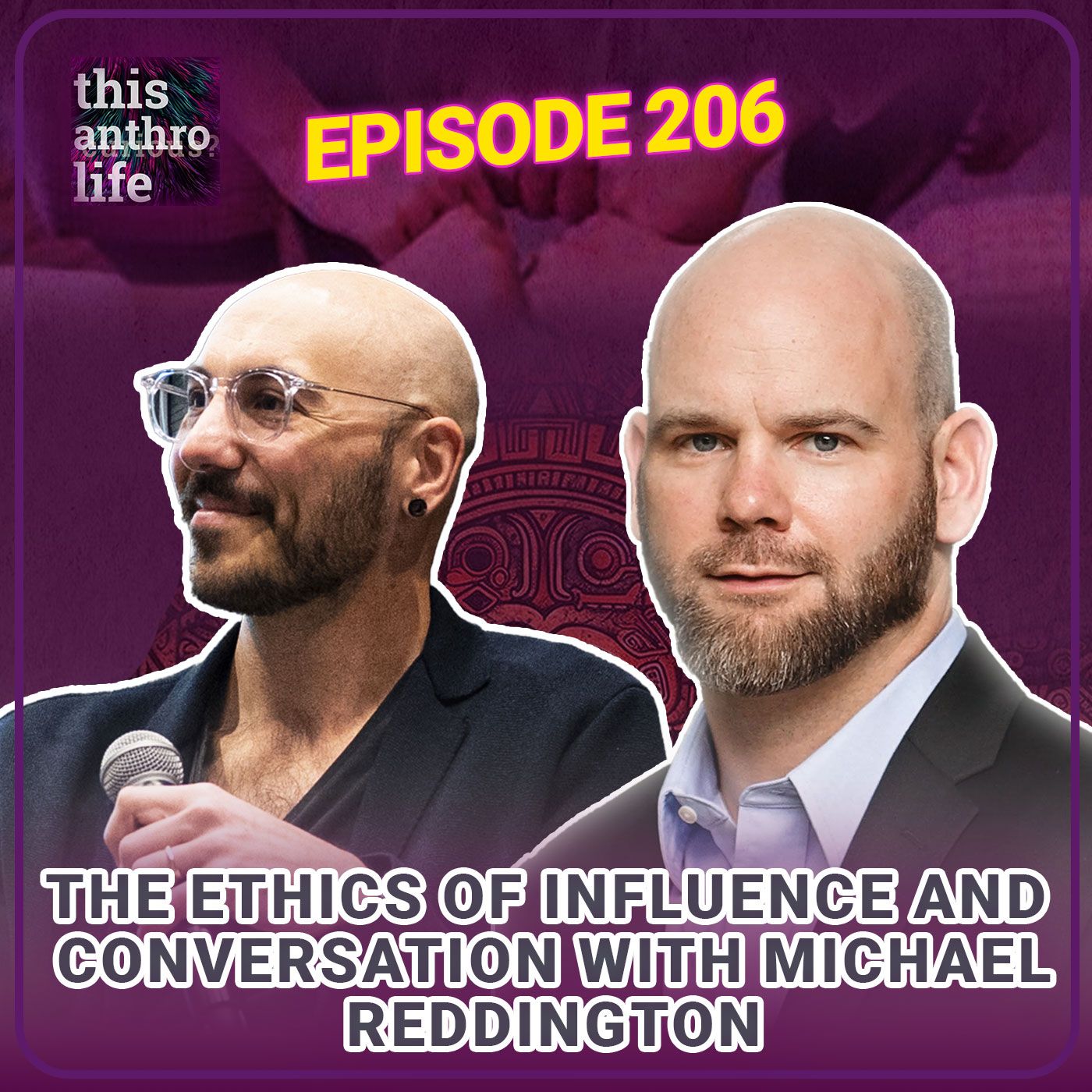
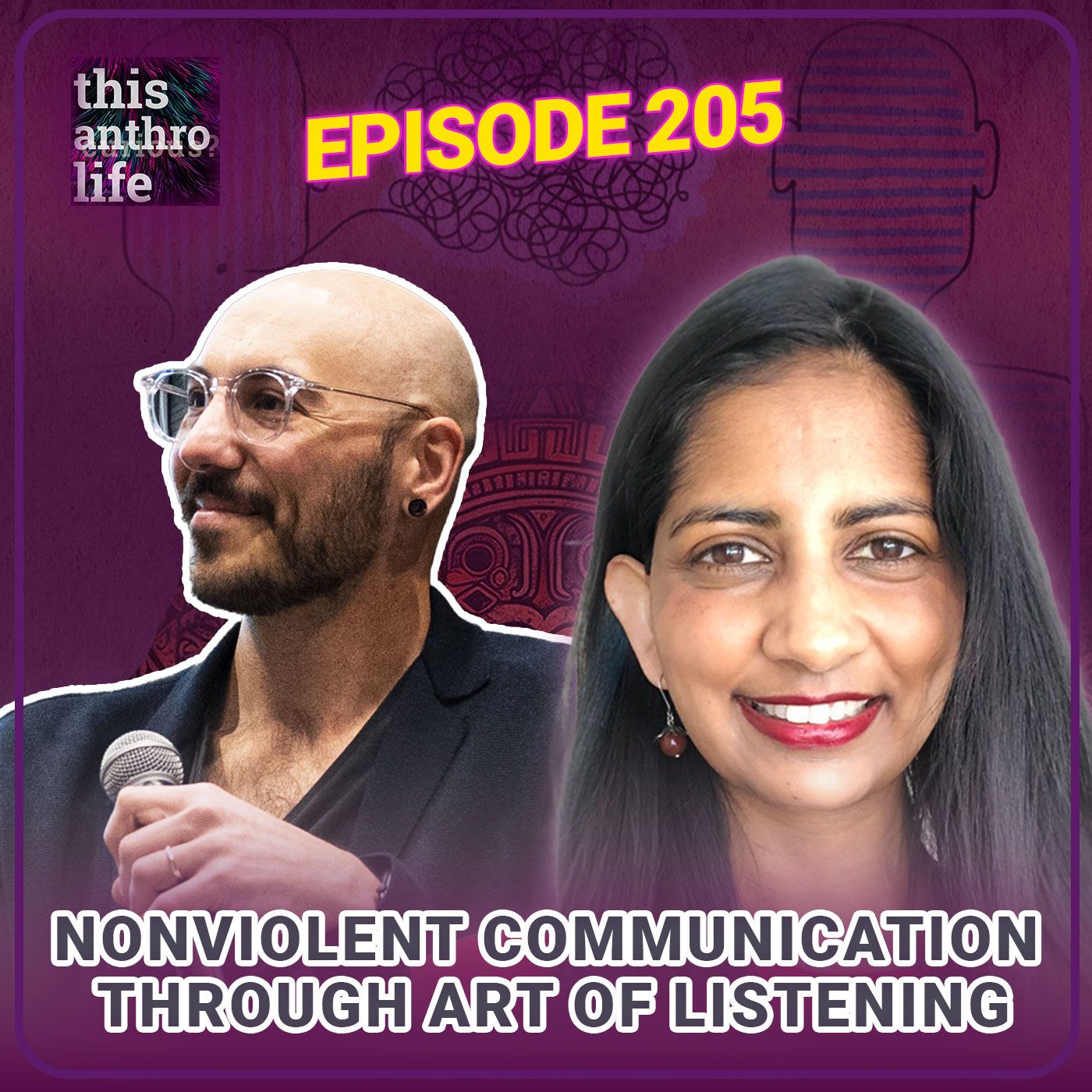
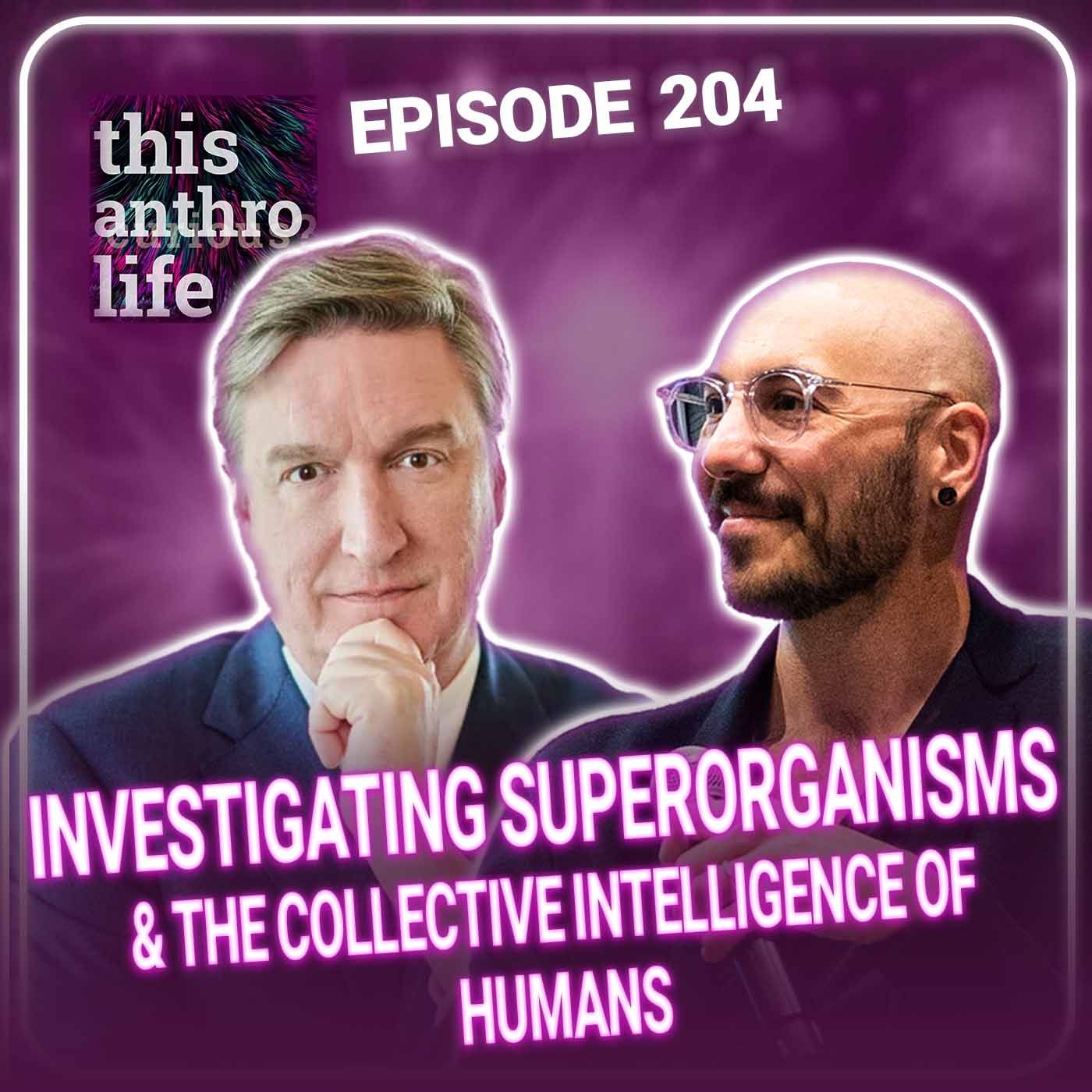
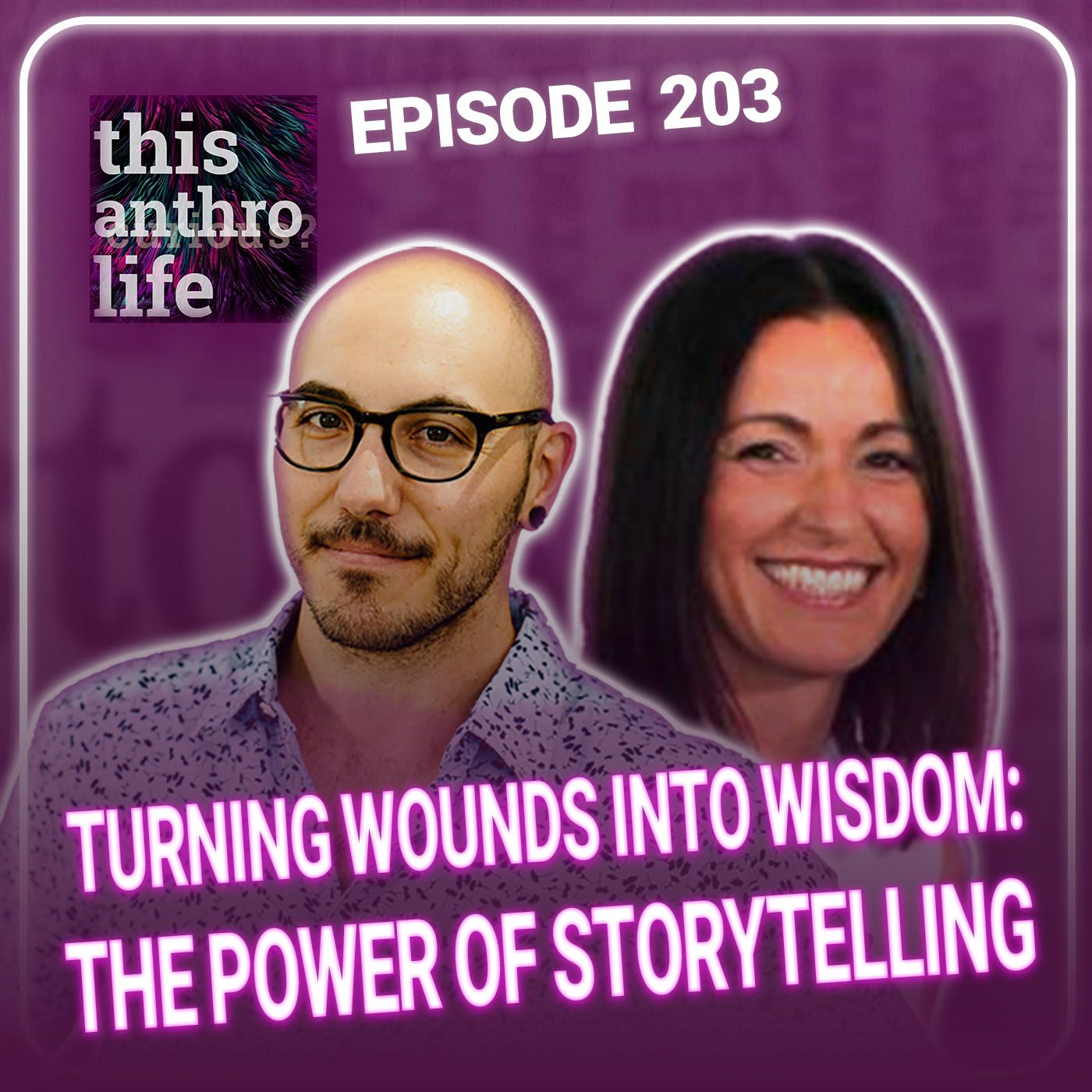
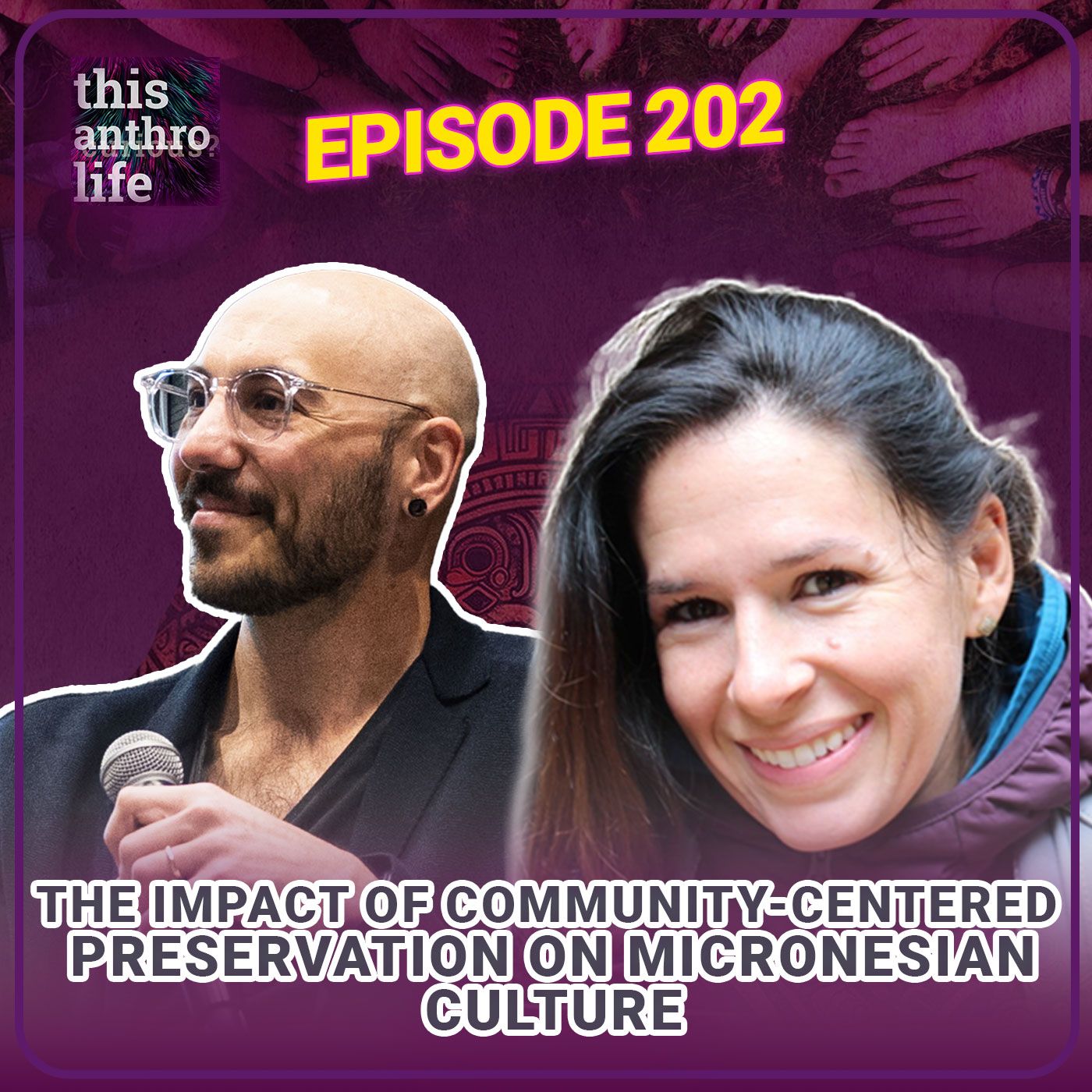
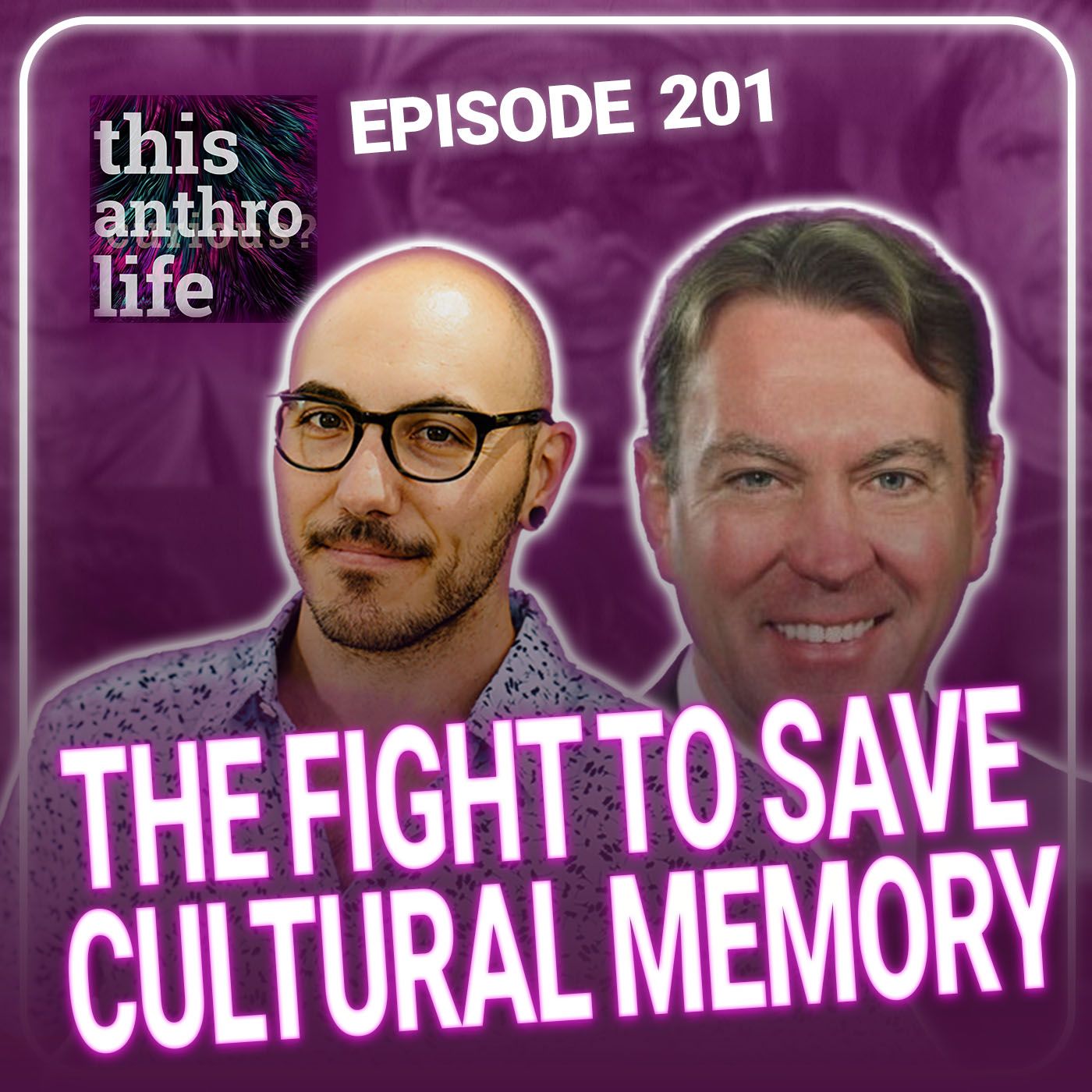

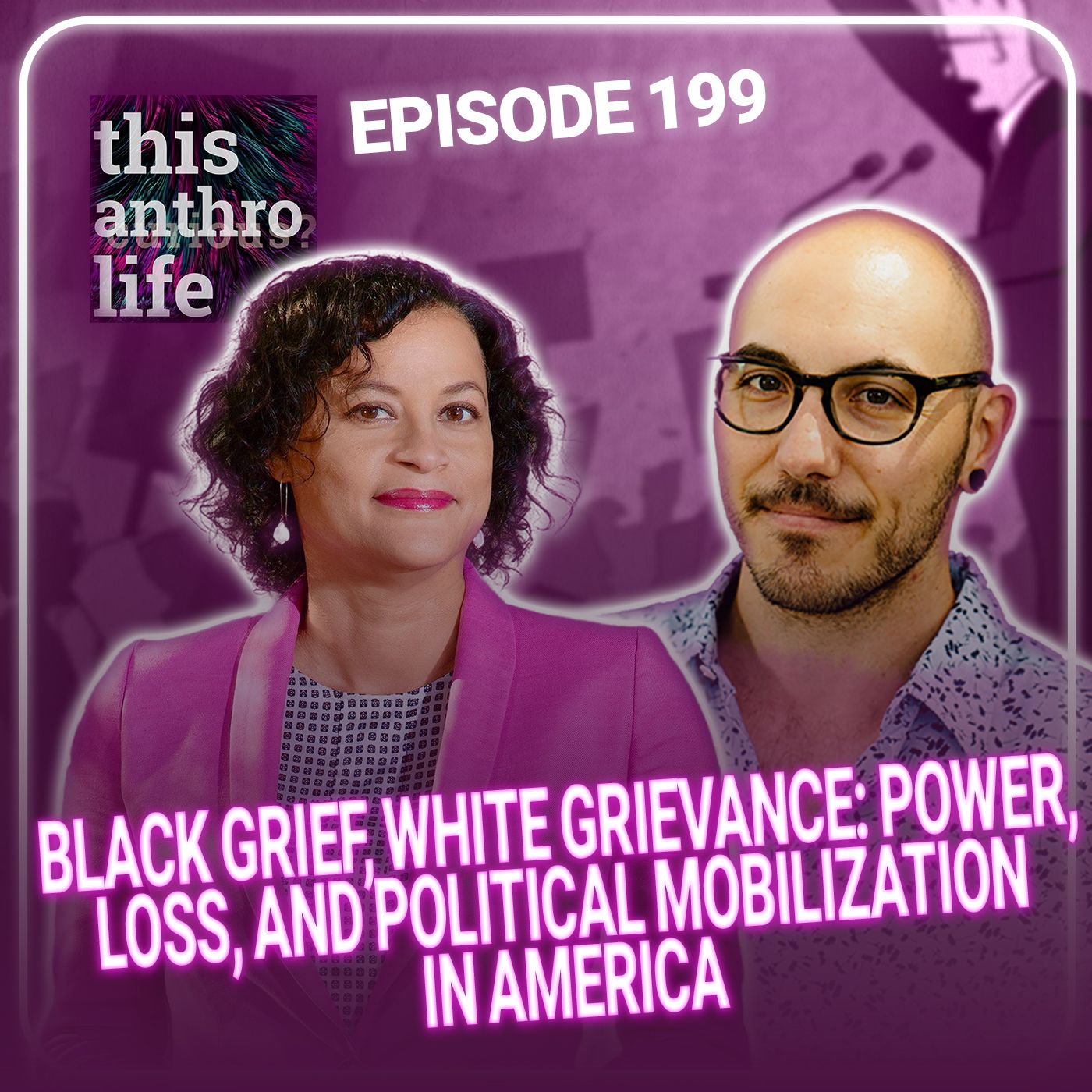
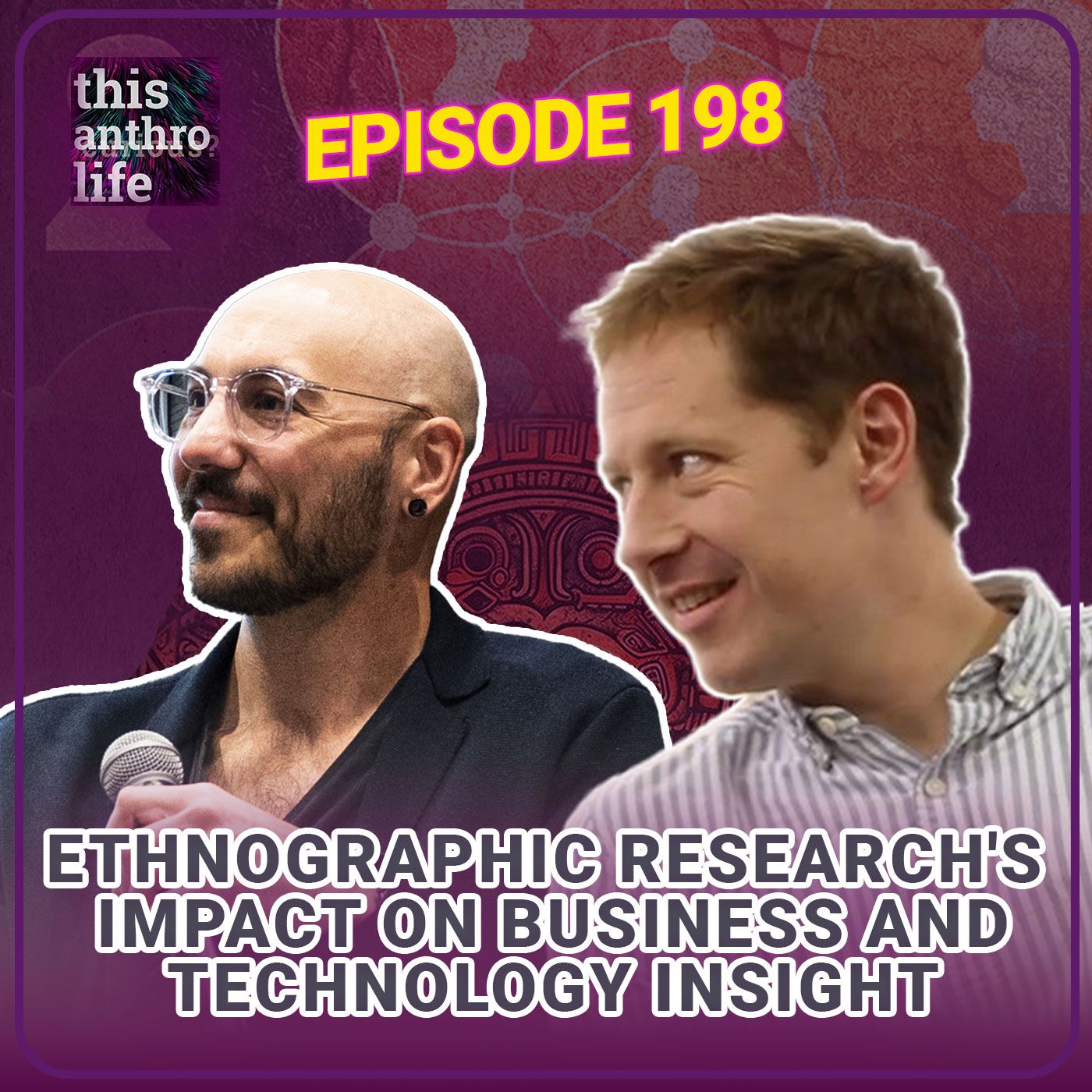
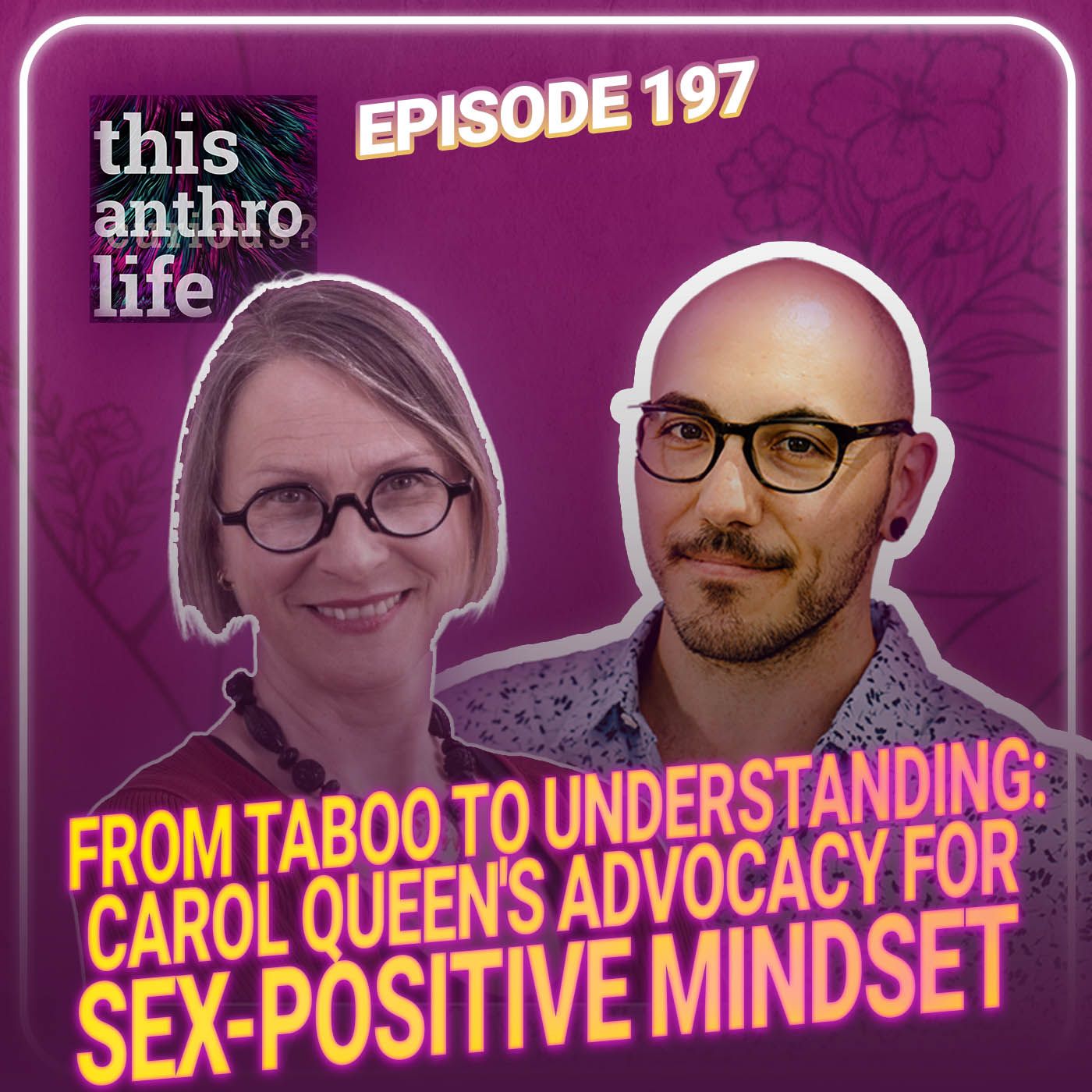
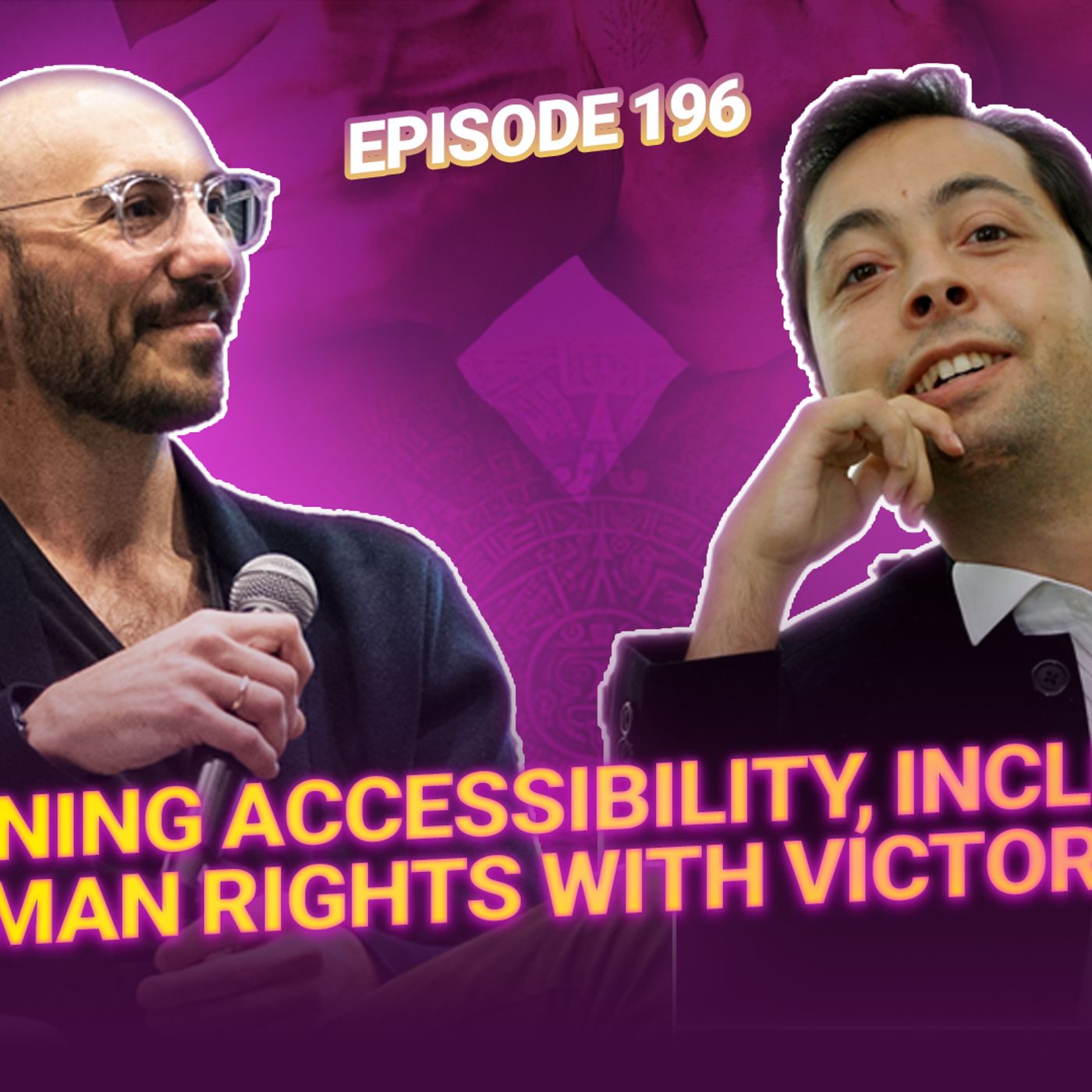


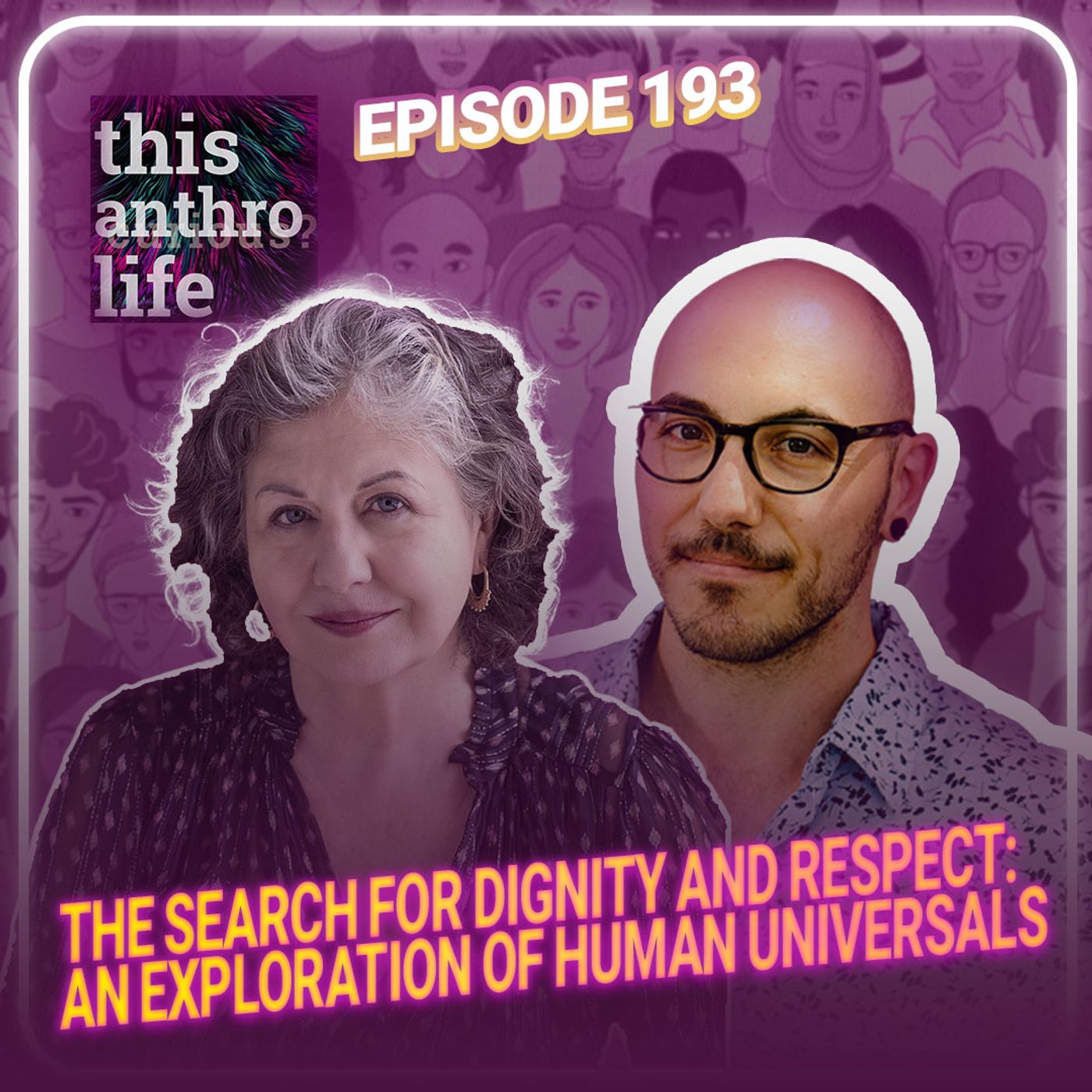





A truly fascinating Anthropology podcast. The subject matter goes beyond what 'we' may think is anthro related. I really suggest giving this show a listen to. Even if you don't find interest every episode topic-- look the list over & you'll discover many that do.